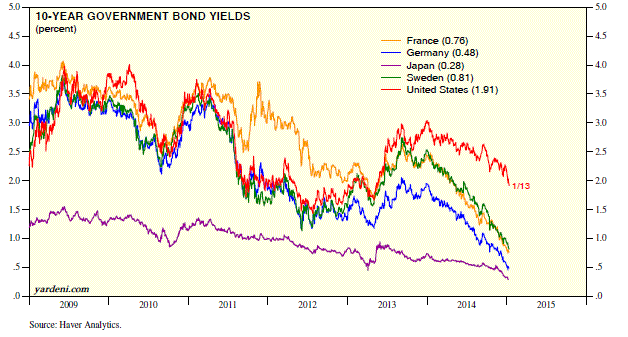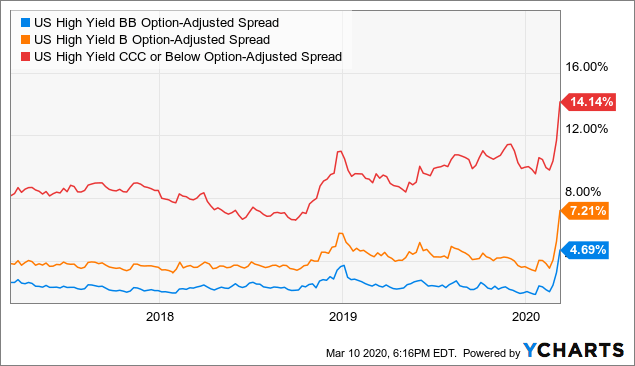
With a track record of paying dividends, the best dividend-paying stocks are those that have a history of success. These companies will usually give a percentage of their earnings back to investors. Thus, each stock shares is equal to the amount you would get in a bank account. But not all companies pay dividends in the beginning. Instead, look for companies that have a history of paying dividends. The majority of dividend-paying stocks come from long-standing industries like banking, utilities, oil & gas, and realty.
Coca-Cola
Coca-Cola can be your best choice for high-quality dividend stocks. This time-tested company has been increasing its dividend for over 25 years. The company's profits and cash flows cover the dividend so it has a high margin for safety before it is cut. Its dividend yield is also above average. Coca-Cola is a blue-chip stock that offers high dividend yields and long-term growth prospects.
Coca-Cola has been increasing its dividend payments over the past decades, despite recent market declines. The latest increase was 4.8%. It is the largest since 2008. This increase was greater than the CAGR for dividend per share of 4.68% in the past eight years. Coca-Cola's net income has been stagnant for the past 10 years, but it is now back on track. To position itself for the future, they have just added a brand new business to their portfolio.

Emerson Electric
If you're looking for a dividend stock, consider Emerson Electric. With a yield of 8-11% over the next 15 years, this company is an excellent dividend choice. The company pays dividends on a quarterly schedule, though the timing can be a little unpredictable. You can still expect a high dividend yield if the company reports better results.
While dividend growth has slowed in recent years, Emerson has maintained its track record of growth. Since 2000, the company has managed to post an average 3.60% increase in EPS. It is projected to rise to $2.41 by 2010, and then reach $2.90 before 2011. Although the company is resilient to economic downturns it can be affected by slowdowns in its five major segments. While recent earnings have remained strong, the company continues to have some challenges, including a recession.
Verizon Communications
Verizon Communications Inc is one of the best dividend-paying stocks. Verizon Communications Inc is a strong investment because of its 5.1% annual dividend rate. It is also one of the most competitive AT&T competitors. However, it will be years before the company can start to generate substantial revenue from 5G wireless apps. Investors might consider large ETFs which track the S&P 500.
Verizon Communications has been increasing its dividend for 17 years consecutively. With a growing business and a stable dividend growth, Verizon is a great investment. Although not the most common stock, it is among the top dividend-paying stocks. It also offers a high rate of growth, making it a good choice for retirement portfolios. It's a solid investment choice for investors. It is also one of the safest dividend stocks.

Chevron
Chevron dividend stocks can be a good investment for beginners to the stock exchange. This American multinational energy corporation is the successor of Standard Oil and is active in over 180 countries. Its headquarters are located in San Ramon (California), but the company operates in more than 180 other countries. To learn more about this company and the dividend payouts, it is worth reading. This article will discuss Chevron's history and reasons to invest in the company.
Chevron, although not as widely held as ExxonMobil's, is still better-positioned than ExxonMobil. Chevron dividend paying stocks may attract higher prices from investors. And as long as the company stays on its course, they should continue to be safe dividend payers. Because of this, they have been able to command a premium price. If you are a conservative investor, you might be willing to fork out a little more.
FAQ
What is the difference of a broker versus a financial adviser?
Brokers help individuals and businesses purchase and sell securities. They take care all of the paperwork.
Financial advisors are experts on personal finances. They help clients plan for retirement and prepare for emergency situations to reach their financial goals.
Banks, insurance companies or other institutions might employ financial advisors. They may also work as independent professionals for a fee.
If you want to start a career in the financial services industry, you should consider taking classes in finance, accounting, and marketing. Additionally, you will need to be familiar with the different types and investment options available.
Are bonds tradeable
Yes, they are. As shares, bonds can also be traded on exchanges. They have been doing so for many decades.
The difference between them is the fact that you cannot buy a bonds directly from the issuer. You must go through a broker who buys them on your behalf.
Because there are fewer intermediaries involved, it makes buying bonds much simpler. This means that you will have to find someone who is willing to buy your bond.
There are many different types of bonds. Different bonds pay different interest rates.
Some pay interest quarterly while others pay an annual rate. These differences make it easy to compare bonds against each other.
Bonds can be very useful for investing your money. For example, if you invest PS10,000 in a savings account, you would earn 0.75% interest per year. The same amount could be invested in a 10-year government bonds to earn 12.5% interest each year.
If all of these investments were accumulated into a portfolio then the total return over ten year would be higher with the bond investment.
What are the pros of investing through a Mutual Fund?
-
Low cost - buying shares directly from a company is expensive. A mutual fund can be cheaper than buying shares directly.
-
Diversification - most mutual funds contain a variety of different securities. One security's value will decrease and others will go up.
-
Professional management – professional managers ensure that the fund only purchases securities that are suitable for its goals.
-
Liquidity – mutual funds provide instant access to cash. You can withdraw money whenever you like.
-
Tax efficiency: Mutual funds are tax-efficient. As a result, you don't have to worry about capital gains or losses until you sell your shares.
-
No transaction costs - no commissions are charged for buying and selling shares.
-
Easy to use - mutual funds are easy to invest in. All you need to start a mutual fund is a bank account.
-
Flexibility: You have the freedom to change your holdings at any time without additional charges.
-
Access to information - You can view the fund's performance and see its current status.
-
Investment advice – you can ask questions to the fund manager and get their answers.
-
Security - you know exactly what kind of security you are holding.
-
Control - you can control the way the fund makes its investment decisions.
-
Portfolio tracking: You can track your portfolio's performance over time.
-
Easy withdrawal - it is easy to withdraw funds.
There are disadvantages to investing through mutual funds
-
Limited investment opportunities - mutual funds may not offer all investment opportunities.
-
High expense ratio. The expenses associated with owning mutual fund shares include brokerage fees, administrative costs, and operating charges. These expenses will eat into your returns.
-
Lack of liquidity - many mutual fund do not accept deposits. They must only be purchased in cash. This restricts the amount you can invest.
-
Poor customer service - There is no single point where customers can complain about mutual funds. Instead, you need to contact the fund's brokers, salespeople, and administrators.
-
It is risky: If the fund goes under, you could lose all of your investments.
What is a REIT?
A real-estate investment trust (REIT), a company that owns income-producing assets such as shopping centers, office buildings and hotels, industrial parks, and other buildings is called a REIT. They are publicly traded companies that pay dividends to shareholders instead of paying corporate taxes.
They are similar to a corporation, except that they only own property rather than manufacturing goods.
How does inflation affect stock markets?
Inflation is a factor that affects the stock market. Investors need to pay less annually for goods and services. As prices rise, stocks fall. That's why you should always buy shares when they're cheap.
Statistics
- Our focus on Main Street investors reflects the fact that American households own $38 trillion worth of equities, more than 59 percent of the U.S. equity market either directly or indirectly through mutual funds, retirement accounts, and other investments. (sec.gov)
- "If all of your money's in one stock, you could potentially lose 50% of it overnight," Moore says. (nerdwallet.com)
- Individuals with very limited financial experience are either terrified by horror stories of average investors losing 50% of their portfolio value or are beguiled by "hot tips" that bear the promise of huge rewards but seldom pay off. (investopedia.com)
- The S&P 500 has grown about 10.5% per year since its establishment in the 1920s. (investopedia.com)
External Links
How To
How to Invest Online in Stock Market
The stock market is one way you can make money investing in stocks. There are many methods to invest in stocks. These include mutual funds or exchange-traded fund (ETFs), hedge money, and others. The best investment strategy depends on your investment goals, risk tolerance, personal investment style, overall market knowledge, and financial goals.
First, you need to understand how the stock exchange works in order to succeed. Understanding the market and its potential rewards is essential. Once you've decided what you want out your investment portfolio, you can begin looking at which type would be most effective for you.
There are three main types: fixed income, equity, or alternatives. Equity is the ownership of shares in companies. Fixed income is debt instruments like bonds or treasury bills. Alternatives include things like commodities, currencies, real estate, private equity, and venture capital. Each option comes with its own pros and con, so you'll have to decide which one works best for you.
Once you have determined the type and amount of investment you are looking for, there are two basic strategies you can choose from. The first is "buy and keep." This means that you buy a certain amount of security and then you hold it for a set period of time. The second strategy is "diversification". Diversification means buying securities from different classes. If you buy 10% each of Apple, Microsoft and General Motors, then you can diversify into three different industries. The best way to get exposure to all sectors of an economy is by purchasing multiple investments. It helps protect against losses in one sector because you still own something else in another sector.
Risk management is another crucial factor in selecting an investment. Risk management will allow you to manage volatility in the portfolio. A low-risk fund could be a good option if you are willing to accept a 1% chance. However, if a 5% risk is acceptable, you might choose a higher-risk option.
Learning how to manage your money is the final step towards becoming a successful investor. Managing your money means having a plan for where you want to go financially in the future. Your short-term, medium-term, and long-term goals should all be covered in a good plan. Then you need to stick to that plan! Do not let market fluctuations distract you. You will watch your wealth grow if your plan is followed.